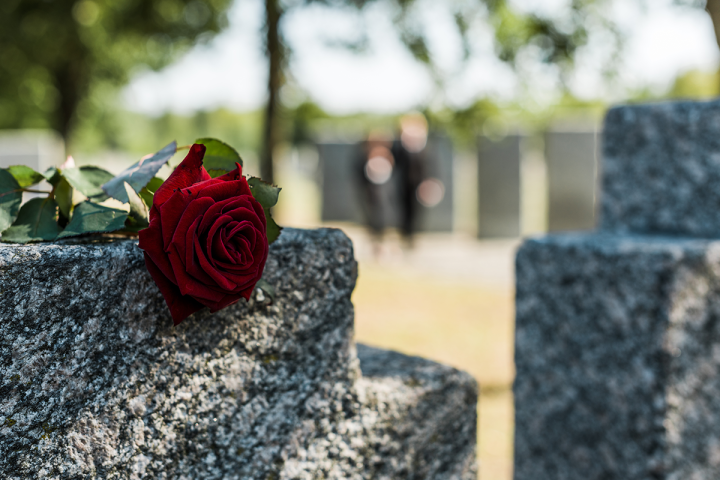What’s the Whole Point of Christian Teaching?
I have personally written, as well as selected and published those written by others, a number of articles lately on the importance of assembling together for worship and attending the different opportunities for learning and growth we offer. But maybe we do not always see the point of that. Here is an interesting article from Wes McAdams’ “Radically Christian” that helps put it in perspective. -BP We attend Bible classes, Bible studies, devotionals, and worship services. We read our Bibles…
Is “Church” Really the Best Word to Use? Maybe Not
I came across this old article from Wes McAdams this week and thought it was another worth publishing here. This is an argument I have made multiple times since I have been here, but it is worth noting again. His second point of application is particularly pertinent; if it seems that a lot of articles lately have been related to assembling, engagement, involvement—well, it’s because they have been. Perhaps one of them will sink in. As always, I encourage you…
What We Need to Change to Make Worship More Enjoyable
This is another article by Wes McAdams, whose writings I have often reprinted and commended in this space. Check out “Radically Christian,” his substack, for more great content. I believe this one certainly presents something for us to think about. -BP For many Christians, the worship assembly feels like a “duty,” in the worst sense of the word. Coming to the worship assembly is something they feel they must do, but not something they enjoy doing. This has left many…
The End of Grief
Then the angel showed me the river of the water of life, bright as crystal, flowing from the throne of God and of the Lamb through the middle of the street of the city; also, on either side of the river, the tree of life with its twelve kinds of fruit, yielding its fruit each month. The leaves of the tree were for the healing of the nations. No longer will there be anything accursed, but the throne of God…
A Message to Christians Who Don’t “Go to Church” Anymore
There is a sense in which this kind of article is sort of misplaced in a bulletin; after all, you are here! But sometimes we see this same sort of reasoning by those who are on the periphery, disengaged, barely involved in the work and worship of the church—“here,” but only just, and rarely at that. If that applies to you, I hope you will consider this article from Wes McAdams. As always, you can find more of his writing…
Celebrating the Fourth
Later this week, this nation will celebrate Independence Day; in fact, we will gather here in the Family Life Center on the evening of July 3 for “Fellowship and Fireworks.” There is obviously nothing wrong with that insofar as it goes. But I have always found it rather contradictory that we sometimes have questions about how we ought to observe religious holidays like Easter or Christmas, yet we seldom if ever think about how we should recognize secular holidays. But…
What a Weariness This Is!
On Wednesday evenings, we have spent the last year studying through the Minor Prophets. We are just about finished with that as we are in the final book, Malachi. If you are not familiar with Malachi, it consists almost entirely of a series of disputation speeches: an assertion is made, usually about God’s character; a hypothetical rebuttal in the form of a question follows; the prophet then restates the initial premise and offers evidence to demonstrate his claim. A couple…
The Case Against Rebaptism
We have been winding up this series of articles on baptism by considering if there is any scenario where someone should be rebaptized. We began to answer that last week with the story of the Ephesian Disciples in Acts 19. To briefly reiterate, there was a very eloquent and knowledgeable preacher in Ephesus, Apollos, but he only knew John’s baptism. Thus, he taught about Jesus, but it was incomplete; Aquilla and Priscilla instructed him more accurately, and he went on…
A Case of (Re?)Baptism
Last week, we considered what a person needs to know before baptism. To sum up, you must: believe in Jesus; be ready to commit to him; and understand what baptism means. That last point in particular needs to be carefully defined—it does not mean that you must understand every blessing associated with baptism for it to be valid. We must be aware that God commands it in response to the gospel, but our ignorance of every promise associated with it…
What Do I Need to Know Before Baptism?
Over the past several weeks, we have looked in detail at what Scripture has to say about baptism in this space. We have seen that joining with Christ is at the center of baptism. We have noted the blessings that accompany baptism: forgiveness of sins, the gift of the indwelling Holy Spirit, entrance into the Kingdom of God, and eternal life. We have also answered some of the common objections to placing this significance on baptism: baptism does not subvert…
Baptism and Salvation by Works
Over the last couple of weeks, we have studied objections to the understanding of baptism we have delineated in this space. We first considered the contention that it undermines salvation by faith. We saw that this is based on a misunderstanding of biblical faith. Faith is more than just mental assent; it requires faithfulness. Obedience, then, is the common theme for answering such objections. Last week, we explored another concern some raise, that an emphasis on baptism subverts salvation by…
Baptism and Salvation by Grace
We have spent several weeks laying out what Scripture teaches about baptism in this space. But we know that not everyone understands its significance the same way, and we have now been examining why that is. One objection, which we considered last week, is that it undermines salvation by faith. We saw that this is based on a misunderstanding of biblical faith. Faith is more than just mental assent; it requires faithfulness. Obedience, then, is the common theme for answering…











